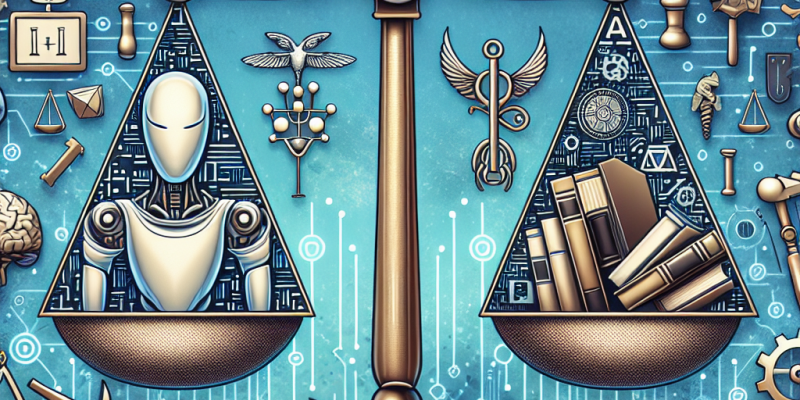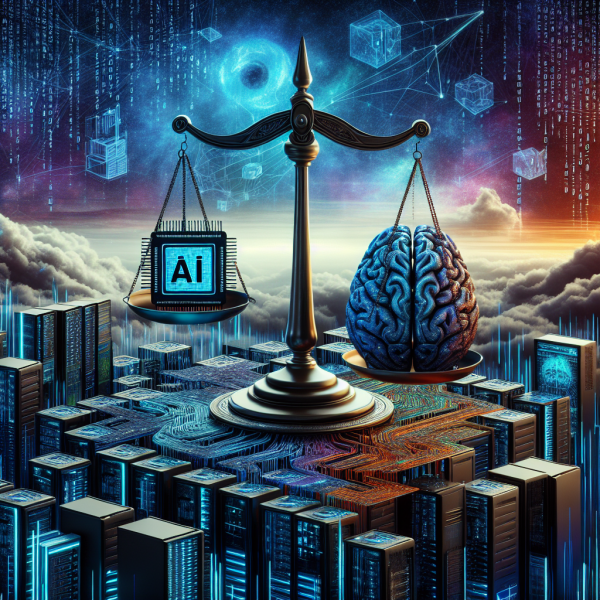Balancing Innovation and Ethics: Drafting the Future of AI Regulation

As Artificial Intelligence (AI) continues to transform industries, enhance productivity, and redefine human interaction, the need for robust regulations has never been more pressing. The rapid advancement of AI technologies presents profound ethical and societal challenges, compelling regulators, technologists, and ethicists to engage in an ongoing dialogue about how to harness the benefits of innovation while safeguarding fundamental human rights.
The Promises of AI Innovation
AI has the potential to revolutionize various sectors, including healthcare, education, finance, and entertainment. For instance, in healthcare, AI algorithms can analyze vast datasets to detect diseases early, recommend treatments, and even assist in surgical procedures. In finance, machine learning enhances fraud detection, streamlines processes, and personalizes customer experiences. The education sector benefits from adaptive learning platforms that tailor content to individual student needs, promoting better learning outcomes.
These innovations can lead to increased efficiency, economic growth, and improved quality of life. However, the rapid pace of development has raised questions about who benefits from these advancements and at what cost.
Ethical Challenges in AI
The ethical considerations surrounding AI are complex and multifaceted. Key issues include:
-
Bias and Discrimination: AI systems often learn from historical data, which may reflect existing biases. This can lead to discriminatory outputs in hiring, loan approval, and law enforcement, perpetuating inequalities.
-
Privacy: The data-driven nature of AI raises significant privacy concerns. Individuals may unknowingly provide personal information that is used to train AI models, leading to issues around consent and data ownership.
-
Accountability: As AI systems make more decisions autonomously, determining accountability becomes challenging. For instance, if an AI system causes harm, who should be held responsible?
-
Job Displacement: Automation and AI threaten to displace millions of jobs, raising concerns about economic equity and the future of work.
-
Security: The potential for malicious use of AI, such as deepfakes and autonomous weapons, raises significant security concerns that need to be addressed.
The Need for Comprehensive Regulation
To strike a balance between innovation and ethics, comprehensive AI regulation is essential. However, developing effective regulations presents unique challenges:
-
Dynamic Environment: The rapid evolution of AI technologies means that regulations must be adaptable to emerging developments without stifling innovation.
-
Global Implications: AI operates on a global scale, making it crucial for regulations to address cross-border challenges and ensure consistent standards across jurisdictions.
-
Stakeholder Involvement: The drafting of regulations should involve diverse stakeholders, including technologists, ethicists, businesses, and civil society, to ensure comprehensive perspectives are considered.
Framework for Responsible AI Regulation
-
Establish Ethical Guidelines: Regulators should develop clear ethical guidelines that govern AI development and deployment. These guidelines must address issues of bias, privacy, accountability, and transparency.
-
Encourage Best Practices: Encourage the adoption of best practices among organizations developing AI technologies. This can include establishing diverse development teams, conducting regular audits for bias, and involving ethical review boards.
-
Promote Transparency: AI models should be interpretable and transparent to end-users. This includes clear documentation of how systems function and the data they utilize.
-
Involve Public Input: Engage the public in discussions about the ethical implications of AI technologies. Providing platforms for feedback can ensure that diverse voices shape the future of AI regulation.
-
Foster International Cooperation: Recognize that AI is a global challenge requiring international collaboration. Establishing treaties or agreements on AI ethics could facilitate shared standards and best practices.
-
Continuous Evaluation: Regulations should be dynamic, with mechanisms for continuous evaluation and adaptation in light of technological advancements and societal changes.
Conclusion
The challenge of balancing innovation and ethics in AI regulation is monumental but imperative. By establishing a thoughtful framework that addresses ethical concerns while fostering technological advancements, policymakers can help ensure that AI serves as a force for good—driving innovation that benefits society at large. As we draft the future of AI regulation, it is crucial that we keep humanity at the center of our efforts, safeguarding rights and values while embracing the transformative potential of technology.














